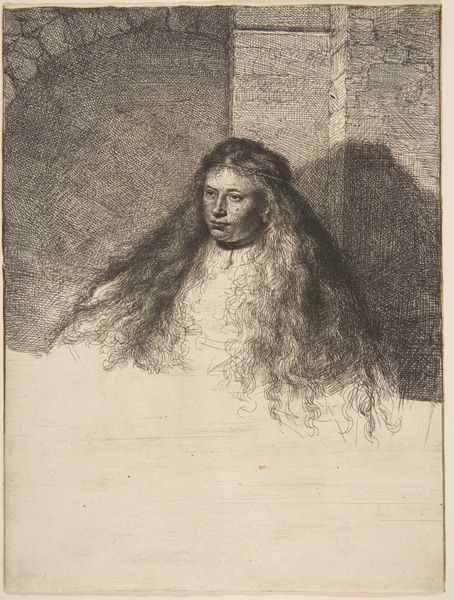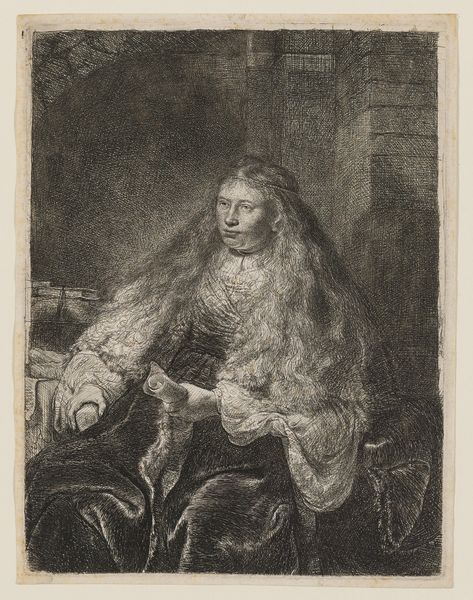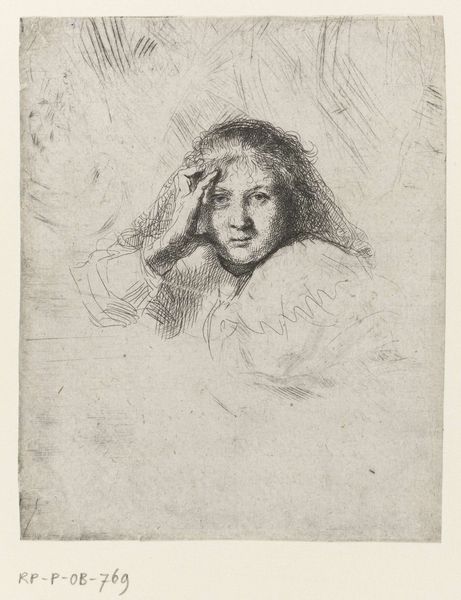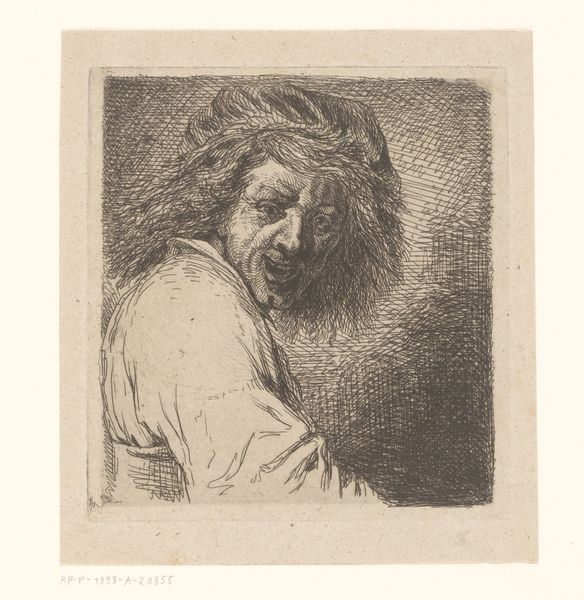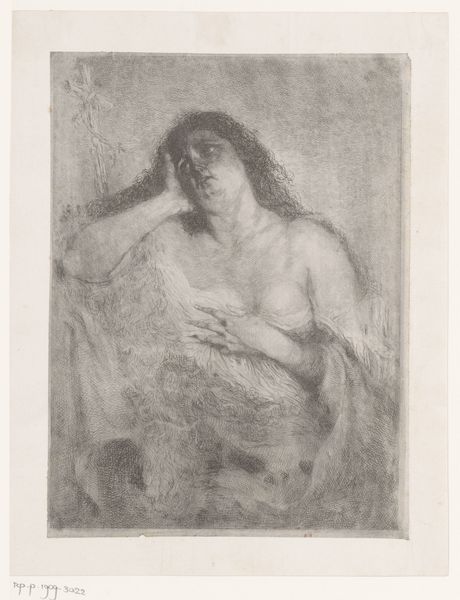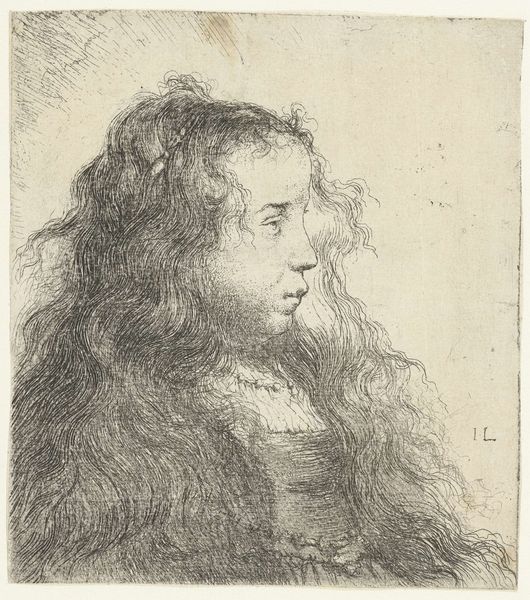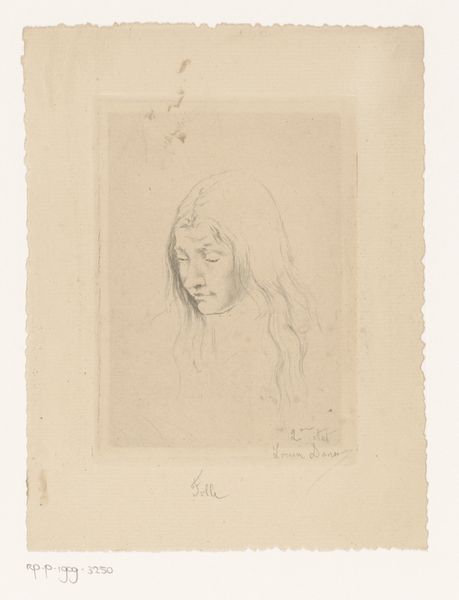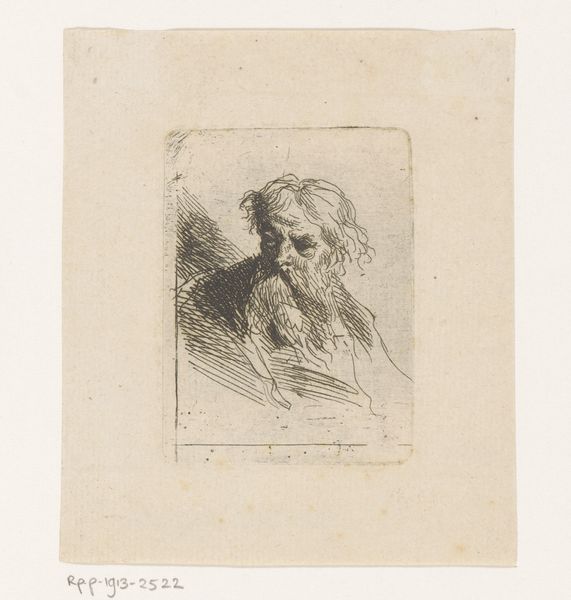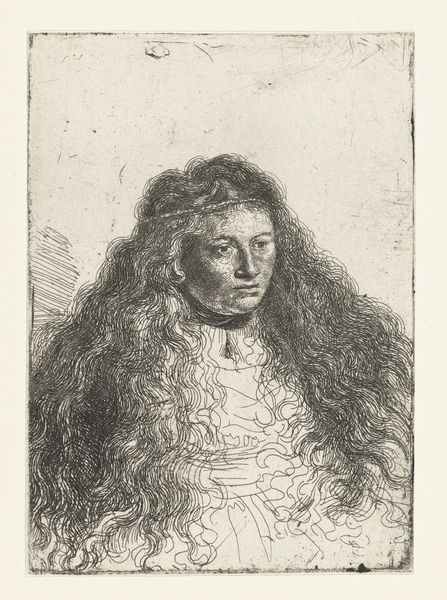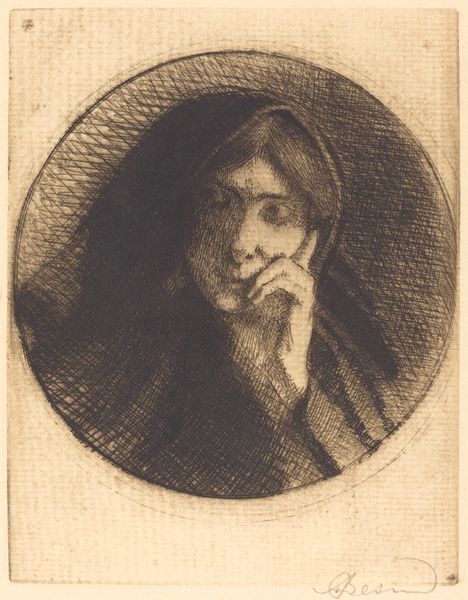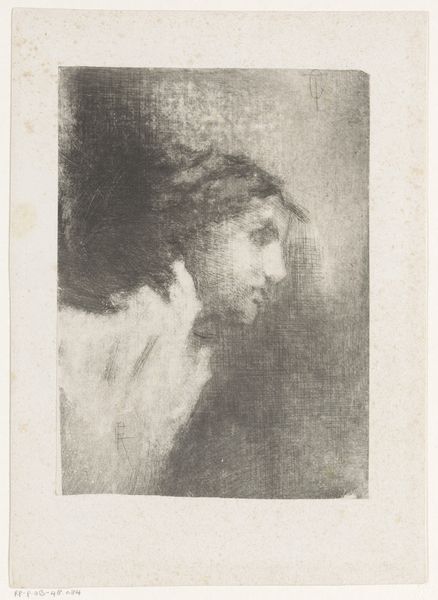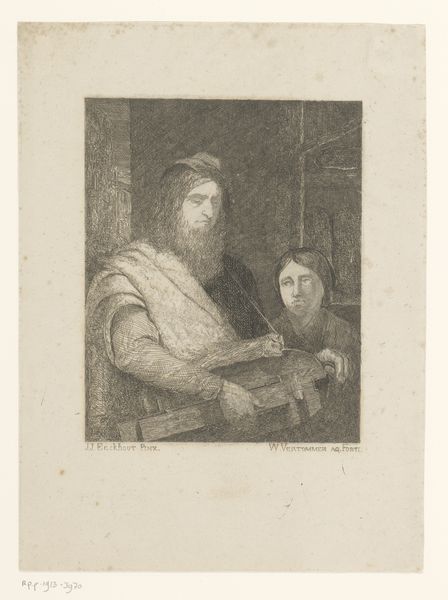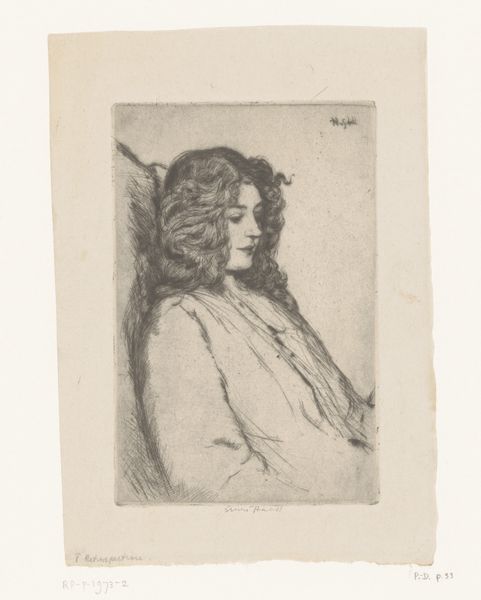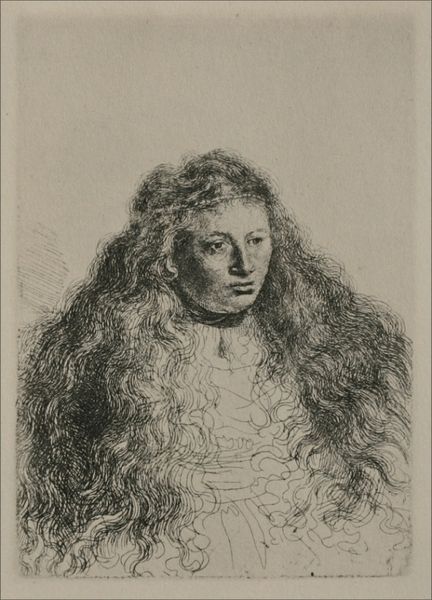
print, etching
#
portrait
#
baroque
# print
#
etching
#
figuration
#
genre-painting
Copyright: National Gallery of Art: CC0 1.0
Rembrandt van Rijn created "The Great Jewish Bride" using etching techniques, resulting in a composition dominated by delicate, intricate lines that define form and space. The monochromatic palette emphasizes tonal variations, creating depth through contrasting areas of light and shadow. This technique, known as chiaroscuro, is employed to highlight the subject's features. The woman's figure emerges from a dark background, which creates a sense of intimacy and focus. Her elaborate hair and attire suggest a narrative context, even as the exact story remains ambiguous. The etching's structure draws attention to the textural contrasts between her hair, clothing, and the smooth areas of the print, enriching the visual experience and implying symbolic meaning. The delicate line work, combined with the play of light and shadow, destabilizes fixed meanings and categories, inviting viewers to bring their interpretations to the work. This open-endedness is not merely aesthetic but functions as part of a larger cultural dialogue about identity, representation, and narrative. The interplay between detail and ambiguity serves to evoke emotions and engage the viewer.
Comments
No comments
Be the first to comment and join the conversation on the ultimate creative platform.
